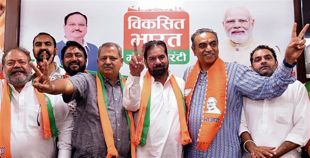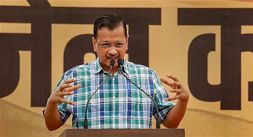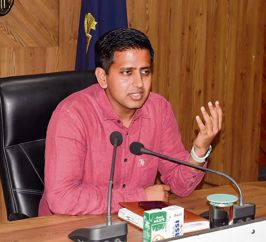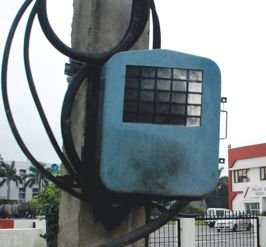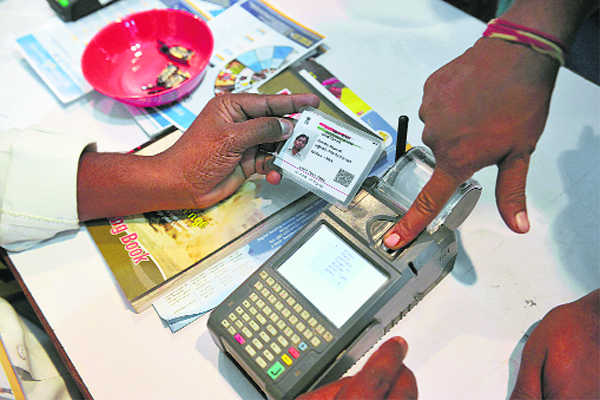
Need of the hour: Parliament has to perform its constitutional obligation of making a law on privacy. Tribune photos
Madabhushi Sridhar
THE basic concept and definition of privacy rendered by Justice BP Jeevan Reddy in the Rajgopal case (1994) and the emphatic dissent of Justice Subbarao in the MP Sharma case formed the solid basis of the nine-judge bench recognising and declaring that the right to privacy is the intrinsic part of life under Article 21 and a part of the freedoms guaranteed by Part III of the Constitution. Now the Aadhaar link has to be decided on the Aadhaar of this unanimous order of the Supreme Court.
Justice Chandrachud referred to the landmark order of Justice Jeevan Reddy, who said: “The right to privacy is implicit in the right to life and liberty guaranteed to the citizens of this country by Article 21. It is a 'right to be let alone'. A citizen has a right to safeguard the privacy of his home, his family, marriage, procreation, motherhood, child-bearing and education among other matters. None can publish anything concerning the above matters without his consent — whether truthful or otherwise and whether laudatory or critical. If he does so, he would be violating the right to privacy of the person concerned and would be liable in an action for damages. The position may, however, be different, if a person voluntarily thrusts himself into controversy or voluntarily invites or raises a controversy”.
Recently, in the Ram Jethmalani case, the Supreme Court held the revelation of the details of the bank accounts of individuals without the establishing wrongdoing would be a violation of the right to privacy. The judges cited catena of orders from India and abroad to explain how privacy assumed fundamental importance as a basic right. This judgment will have a significant impact on the Government's Aadhaar scheme, under which the state is collecting huge personal details and biometrics to identify beneficiaries for accessing social benefits under various welfare schemes.
The question that another five-judge bench of Supreme Court is going to decide is: Whether the Aadhaar programme is a breach of privacy, informational autonomy and bodily integrity?
The Union contended that the right to privacy was not fundamental, while four state governments — Karnataka, West Bengal, Punjab and Puducherry —where non-BJP political parties are ruling, opposed the Centre's contention and pleaded for the right of privacy. The Maharastra government said that it is a concept and not a stand-alone right.
This landmark declaration that it is a fundamental like the right to life will impact national and global jurisprudence on privacy vis-à-vis information-based economy and governance.
The Supreme Court overruled its earlier verdicts in MP Sharma and Kharak Singh. As an eight-member bench in MP Sharma decided against the fundamental right status of privacy, this nine-member bench was necessitated. The Supreme Court prepositions subsequent to the Kharak Singh case were held to be correct position in law. The Attorney General's argument of doubtful status of privacy based on the Supreme Court orders in the MP Sharma and Kharak Singh cases was rejected emphatically.
In MP Singh, the Supreme Court held that a power of search and seizure is in any system of jurisprudence an overriding power of the State for the protection of social security and that power is necessarily regulated by law. The Court felt that the Constitution makers did not subject the regulation by law of the power of search and seizure to a fundamental right of privacy. The decision in the Kharak Singh case held that clause (b) of Regulation 236, which provided for domiciliary visits at night, was violative of Article 21.
The bench observed that Kharak Singh regards the sanctity of the home and the protection against unauthorised intrusion an integral element of “ordered liberty”. The Supreme Court agreed with the dissent of Justice Subbarao in Kharak Singh. He held that the rights conferred by Part III have overlapping areas. Where a law is challenged as infringing the right to freedom of movement under Article 19(1) (d) and the liberty of the individual under Article 21, it must satisfy the tests laid down in Article 19 (2) as well as the requirements of Article 21. Justice Subba Rao recognised a constitutionally protected right to privacy, considering it as an ingredient of personal liberty.
Justice Chandrachud' draft was signed by Chief Justice Khehar, Justices RK Agrawal, Abdul Nazeer, and approved by Justices Chalameshwar, S A Bobde, R F Nariman, Abhay Manohar Sapre, Sanjay Kishan Kaul, by separate judgments. Referring to the informational privacy, he says: “In aggregation, they disclose the nature of the personality: food habits, language, health, hobbies, sexual preferences, friendships, ways of dress and political affiliation. In aggregation, information provides a picture of the being: of things which matter and those that don't, of things to be disclosed and those best hidden”.
The bench finally cautioned that the judicial recognition of the existence of a constitutional right of privacy is not an exercise in the nature of amending the Constitution nor is the Court embarking on a constitutional function of that nature which is entrusted to Parliament.
The Parliament has to perform its constitutional obligation of making a law on this vital point. Such a law if made should not encroach upon privacy, and if it does it has to withstand the touchstone of permissible restrictions on fundamental rights. Such a law shall stipulate a procedure which is fair, just and reasonable. Thus, a law of privacy with reasonable restrictions to advance security and public interest is the need of the hour.
The writer, a Central Information Commissioner, is a former Professor of Law at NALSAR University of Law, Hyderabad.























